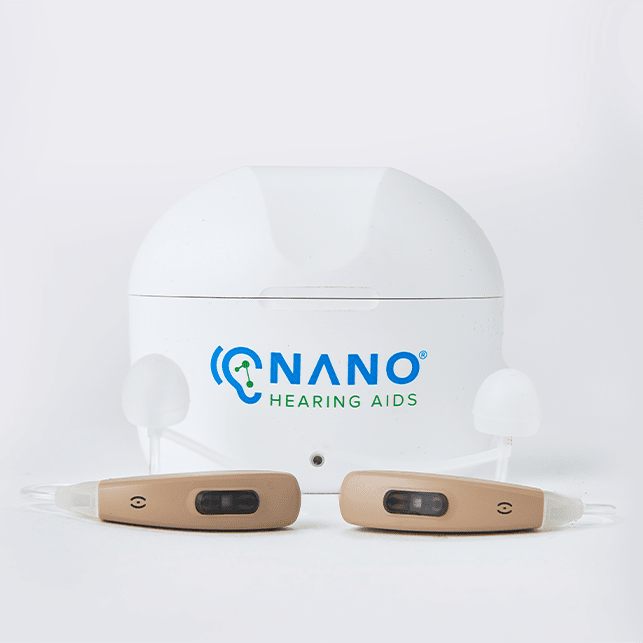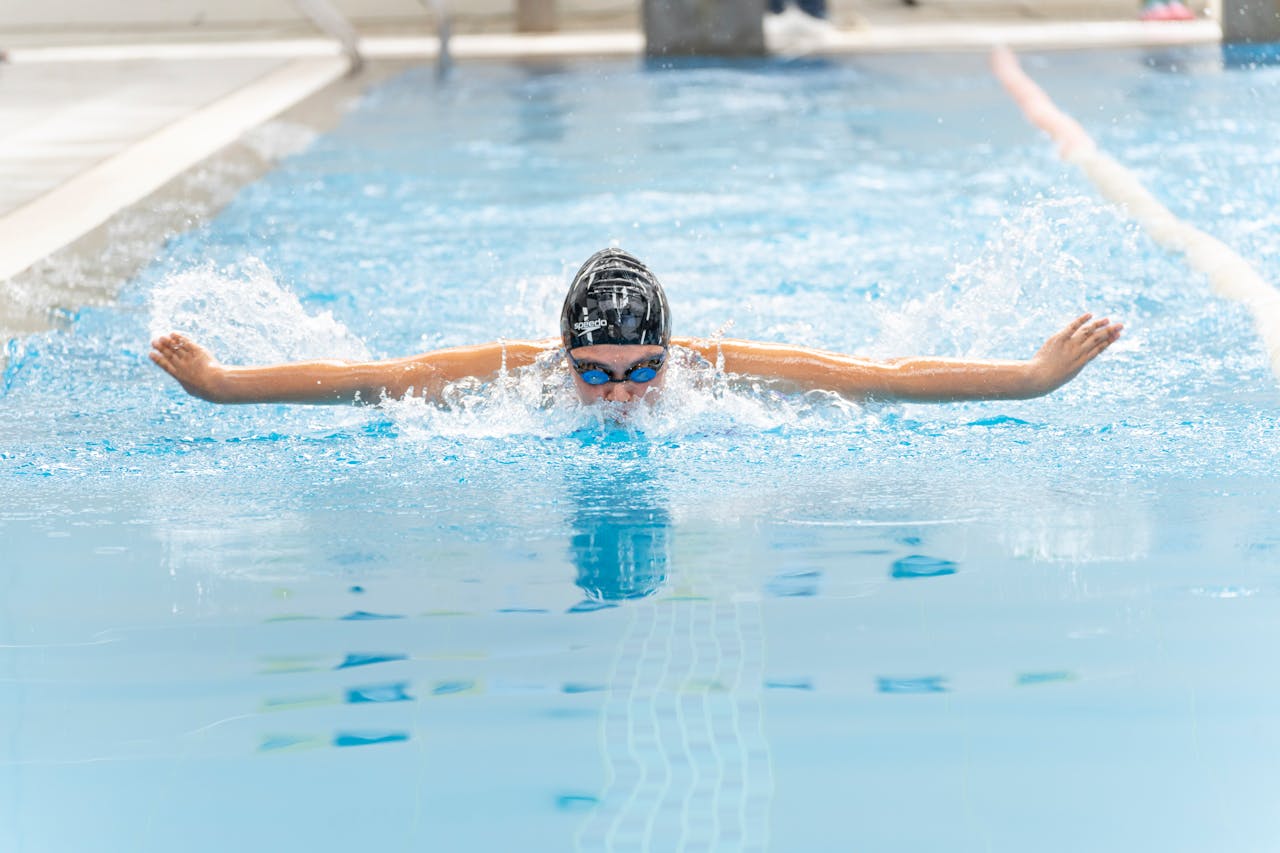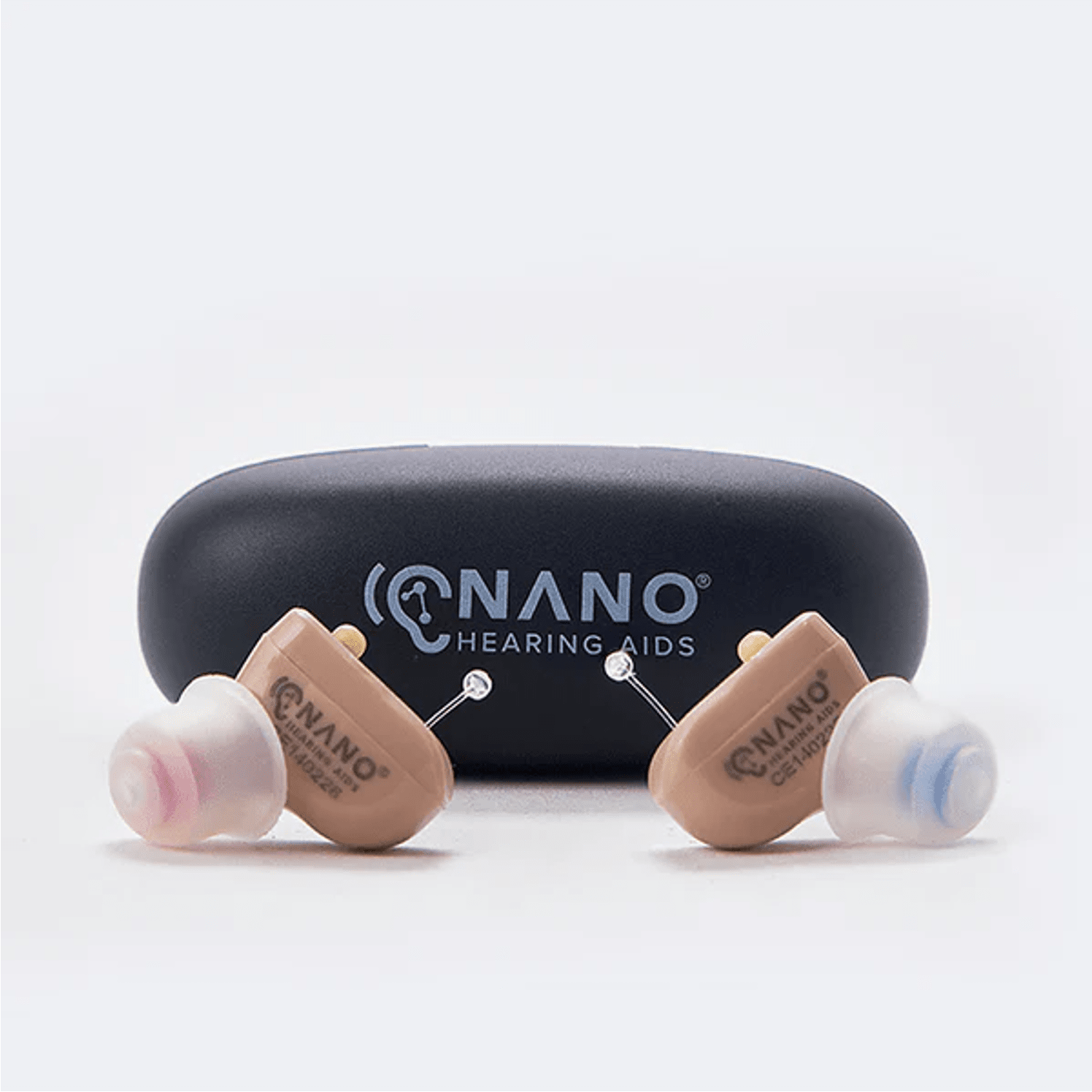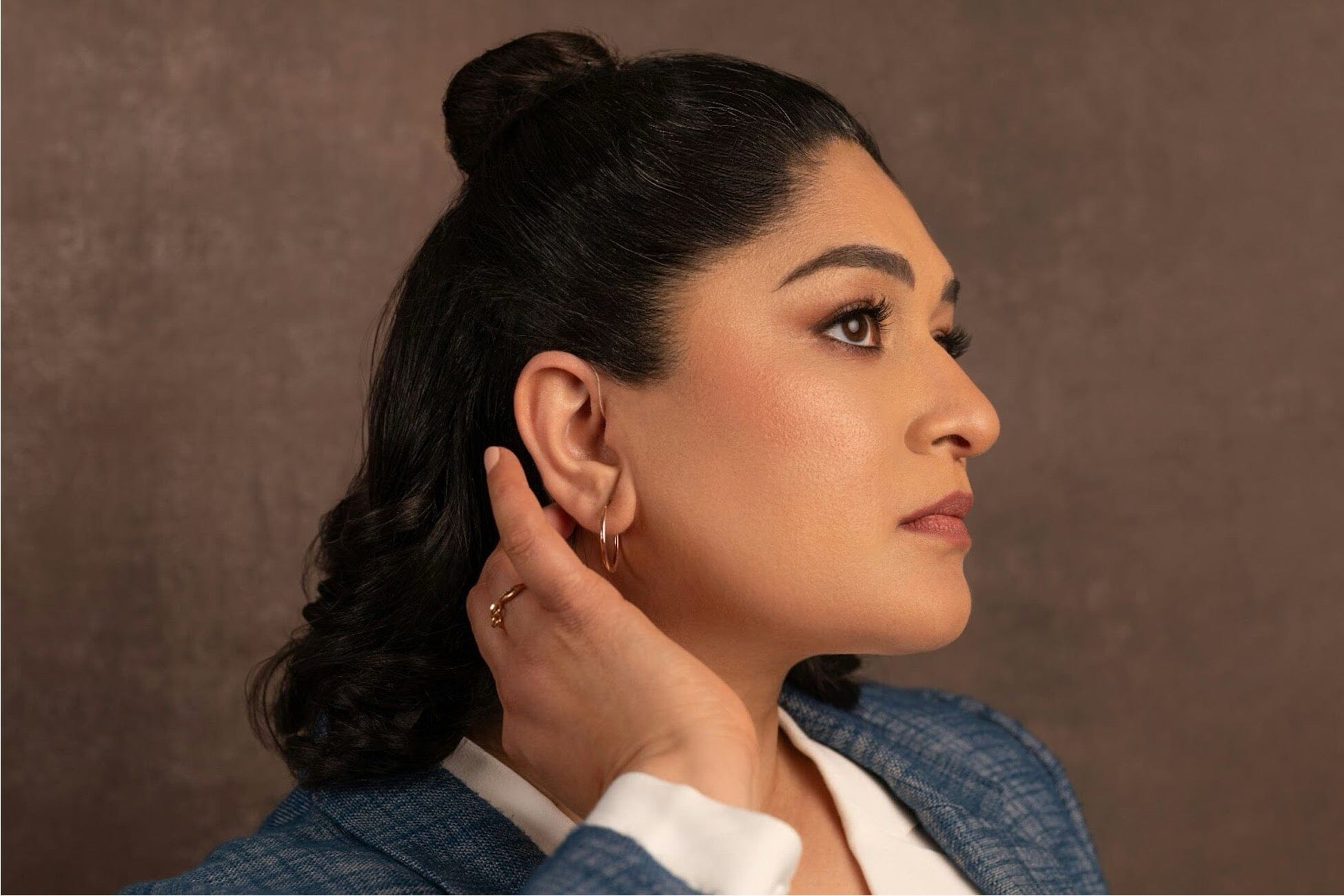Key Takeaways
- Most hearing aids are water-resistant, not waterproof, so it's crucial to know the difference before swimming.
- Waterproof hearing aids do exist, but they are a specific type that must be confirmed with your audiologist.
- Protective gear such as hearing aid sleeves or cases can help prevent water damage during water activities.
- If your hearing aids do get wet, there are immediate steps you can take to minimize damage, such as using a drying container.
- Maintenance and proper storage after exposure to moisture will prolong the life and function of your hearing aids.
Can I Wear OTC Hearing Aids While Swimming?
Swimming with hearing aids is a common concern, especially for those who rely on these devices for better auditory experiences. The short answer is: it depends on the type of hearing aid you have. While most over-the-counter (OTC) hearing aids are water-resistant, very few are truly waterproof. So, before you dive into the water, let's understand the distinction and how it affects your swimming plans.
NANO Hearing Aids are FDA-registered, Class I devices. Our OTC hearing aids are designed for individuals over 18 years of age with perceived mild to moderate hearing impairment. With prices starting at just $297, they offer a viable solution for those looking to improve their hearing without breaking the bank.
Do's and Don'ts for Wearing OTC Hearing Aids While Swimming
Do's
- Do check the IP (Ingress Protection) rating of your hearing aids to determine their level of water resistance.
- Do consult with your audiologist to clarify if your specific hearing aids can withstand immersion in water.
- Do use protective gear, like waterproof cases or sleeves, if you plan to be around water.
- Do have a drying kit or dehumidifier on hand in case your hearing aids get wet.
- Do remove your hearing aids before swimming unless you're certain they are waterproof.
Don’ts
- Don't assume that water-resistant means waterproof; these terms are not interchangeable.
- Don't swim with hearing aids that are not specifically designed to be waterproof.
- Don't leave wet hearing aids in a closed container; always dry them out as soon as possible.
- Don't expose your hearing aids to water for prolonged periods, even if they are water-resistant.
- Don't forget to perform regular maintenance on your hearing aids after exposure to moisture.
OTC Hearing Aid Best Practices While Swimming
When it comes to swimming with over-the-counter (OTC) hearing aids, the best practice is simple: don't do it unless they are explicitly labeled as waterproof - the risk of damaging your device is too great, and water damage is often not covered by warranty. Instead, focus on preventive measures and know how to take care of your hearing aids in wet environments.
Swimming with a waterproof hearing aid is safe from water damage.
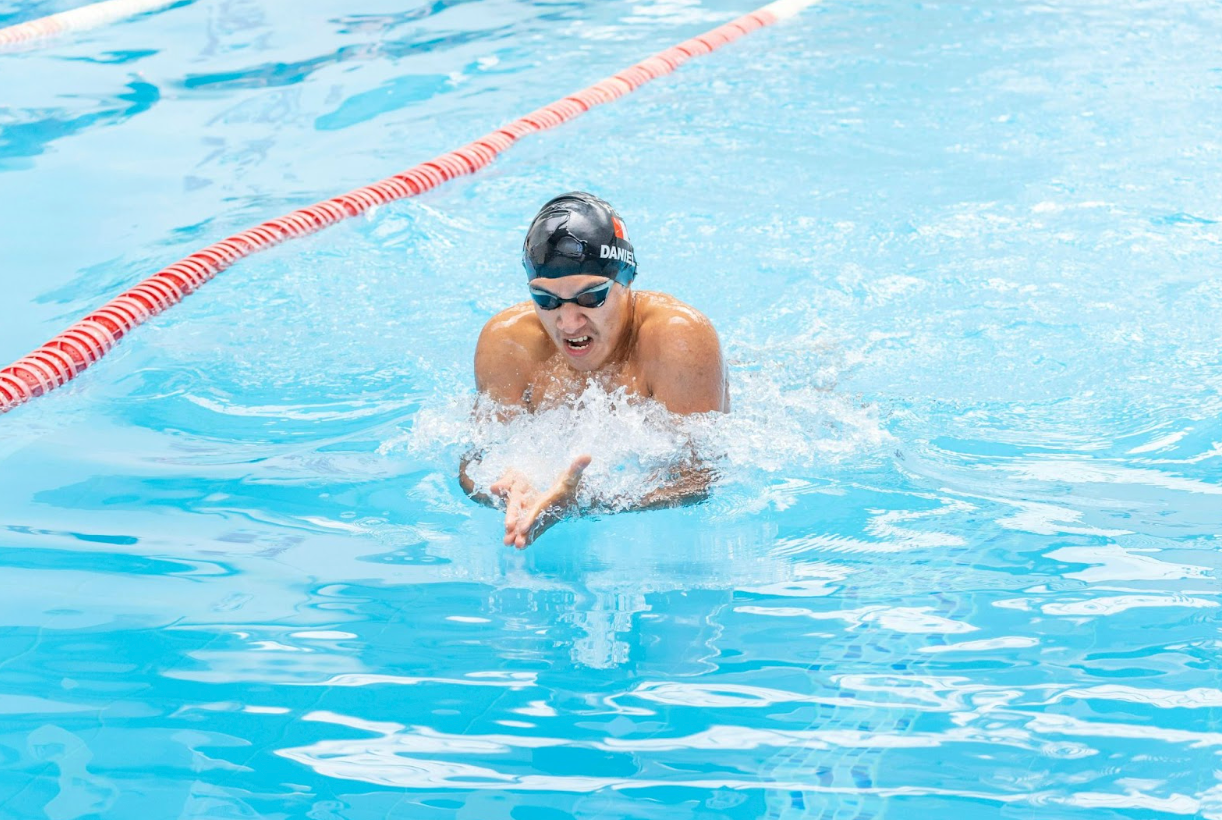
Effective Protective Gear for Your Hearing Aids
For those times when you're around water, even if you're not swimming, it's wise to use protective gear for your hearing aids. Here are some options:
- Hearing aid sleeves or covers: These are designed to provide a water-resistant barrier around your hearing aids. They can protect against splashes and accidental immersion.
- Waterproof cases: If you're not wearing your hearing aids while swimming, store them in a waterproof case to prevent any water damage from splashes or humidity.
- Hearing aid clips: These can secure your hearing aids to your clothing, ensuring that they don't fall into the water if you're engaged in water-related activities.
Keep in mind that even with protective gear, it's best to remove your hearing aids before swimming to ensure their safety and longevity.
How to Quickly Remediate if Water Damage Occurs
If your hearing aids do get wet, follow these steps immediately:
- Turn off the hearing aids and remove the batteries.
- Gently shake out any excess water.
- Use a soft, dry cloth to wipe down the hearing aids.
- Place them in a hearing aid dryer or dehumidifier to remove any moisture.
- Let them dry completely before inserting new batteries and turning them on.
By acting quickly, you can often prevent permanent damage to your hearing aids.
Exploring Waterproof OTC Hearing Aid Options
If you're an avid swimmer or frequently find yourself around water, it may be worth investing in waterproof OTC hearing aids. While they are less common than water-resistant models, waterproof hearing aids are designed to be submerged in water without sustaining damage. They are ideal for swimmers, surfers, and those who engage in water sports.
If this is a feature you need, speak with your audiologist about available options that meet your specific lifestyle requirements - while some hearing aids can withstand water exposure to a degree, not all can handle being submerged. Therefore, always confirm the level of water protection your hearing aids provide before taking the plunge.
Tips for Dry Storage and Maintenance Post-Swim
After enjoying your time in the water, it's crucial to store and maintain your hearing aids properly - this care routine extends their lifespan and ensures they continue to provide the best auditory experience. Here's what you should do:
- Always remove your hearing aids before swimming and store them in a dry, safe place.
- After swimming, clean your ears thoroughly before reinserting your hearing aids to prevent any trapped moisture.
- Use a dedicated drying container or dehumidifier every night to keep your hearing aids dry and functioning optimally.
- Check for any signs of moisture or damage and address them promptly to avoid long-term issues.
Remember, consistent care and proper storage are the keys to maintaining the functionality of your hearing aids. By keeping them dry and clean, you're ensuring that they are ready to enhance your hearing, day after day. Most importantly, if you notice any changes in performance or if your hearing aids start behaving erratically after being exposed to moisture, consult your audiologist as soon as possible - they can help assess any damage and recommend the best course of action, whether it's a simple repair or a more comprehensive service. Therefore, the golden rule is clear: keep your hearing aids dry and well-maintained, and they will keep you connected to the world of sound.
Dive In With Confidence: Smart Hearing Aid Care for Swimmers
The NANO CIC Digital Recharge OTC Hearing Aids (CIC4) model.
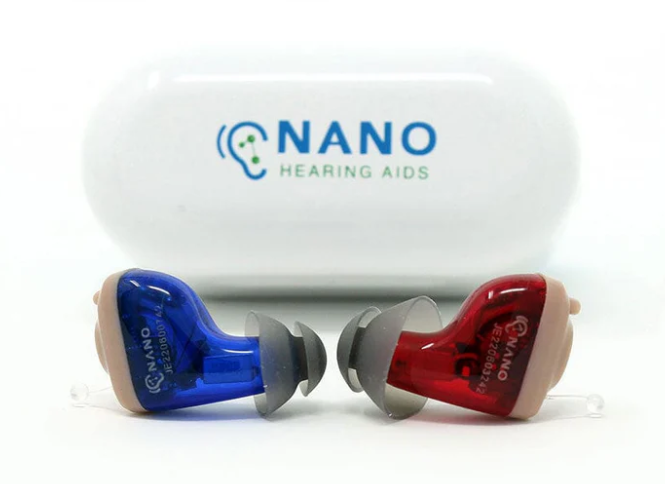
Taking proactive steps to protect and care for your hearing aids will ensure that you can dive into any aquatic adventure with confidence - whether you're lounging by the pool or swimming laps, you can rest assured that your hearing aids are safe and sound. And when you're ready to jump back into the conversation, your hearing aids will be there to help you catch every word.
Frequently Asked Questions (FAQ)
Can I swim with my hearing aids if they are just water-resistant?
No, water-resistant hearing aids can handle moisture to some extent but are not designed to be submerged in water. Always remove them before swimming unless they are certified as waterproof.
What should I do if my hearing aids get wet?
Turn them off, remove the batteries, gently shake out excess water, and dry them with a soft cloth. Then, place them in a hearing aid dryer or dehumidifier to remove any remaining moisture.
How often should I use a dehumidifier for my hearing aids?
It's good practice to use a dehumidifier nightly, especially if you live in a humid climate or if your hearing aids have been exposed to moisture.
What should I do with my hearing aids when I go swimming?
Before swimming, remove your hearing aids and store them in a dry, safe place. Consider using a waterproof container or a hearing aid dehumidifier case to protect them from moisture even while they're not being worn.
Can water-resistant hearing aids be used for swimming?
While some hearing aids are marketed as water-resistant or waterproof, it's essential to get familiar with the specific limitations. Water-resistant models can handle moisture to some degree but are not designed for submersion; truly waterproof hearing aids are rare, and you should consult the manufacturer's guidelines to ensure they can be used for swimming.

